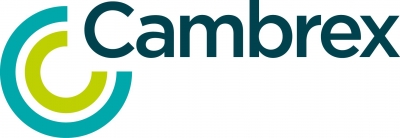How does a CMO handle complexity?
The production of non-potent small molecule drugs accounts for the vast majority of API manufacturing capacity. Nonetheless, clinical successes and growing press surrounding small molecules focused on oncology indications and cancer growth inhibitors has created somewhat of a gold rush of commercial interest in highly potent active pharmaceutical ingredients (HPAPIs).
Terminology such as ‘high potency’ and ‘highly potent molecules’ have almost become cliché as the number of contract manufacturing organizations (CMOs) that claim to be able to handle them proliferates. However, just as recent as a decade ago, the list of CMOs that could legitimately manage the hazards associated with manufacturing HPAPIs could be counted on just one hand.
So how is this webinar any different to everyone else?
It can be tempting to assign high potency to a small molecule in this therapeutic class and in many cases serves as a conservative approach. Perhaps the greatest challenge for toxicological assessment at least, is that these molecules may be highly potent toward cancer cells and yet pose minimal hazard to healthy workers. This is an important departure from past toxicological assessment of legacy cancer drugs that act primarily through somewhat non-selective cytotoxicity.
HPAPIs, and in particularly small molecules being developed for oncology present a new set of challenges for CMOs charged with safe handling during process development as well as clinical and commercial production. In the context of recent developments and investments made by Cambrex in high potency manufacturing, this webinar will:
- Provide an overview of the current HPAPI market
- Introduce HPAPI toxicological assessment
- Explain why there is variability between assessments
- Discuss how variability may impact containment strategies and cost
- Share ideas about how to tailor and customize manufacturing strategies for next-generation small molecules in targeted cancer therapy
Presented by

Mark S. Maier, MSc, PhD, DABT,
Managing partner of Sheperian Toxicology
In a career spanning more than 30-years, Mark Maier’s scientific focus is on toxicology, chemical bioactivity, health risk assessment, exposure assessment, and risk management as each applies to pharmaceuticals, drugs-of-abuse, and food additives. Dr. Maier was responsible for exposure risk assessment and management at Cambrex Charles City and for food additive safety at the Valspar Corporation. He is an affiliate faculty member in the Center for Environmental Medicine at Colorado State University.
Dr. Maier earned his BSc in Chemistry, MSc in Environmental Health, and his PhD in Toxicology from Colorado State University, and is certified in general toxicology by the American Board of Toxicology.
Dr. Maier is managing partner of Sheperian Toxicology, LLC, an international risk assessment, pharmacology and regulatory practice. Dr. Maier’s recent publications include topics in toxicological read-across and safety assessment of endocrine active molecules.

Jeff Pavlovich,
Sr. Process Safety Engineer
Over the past 14 years, Jeff Pavlovich has focused on process risk assessments and PSM management within Cambrex. Prior to his roles in Safety, Jeff worked in Potent Compound Manufacturing and has received advanced training on numerous aspects of occupational safety, including potent compound handling, toxicology and industrial hygiene. Currently Jeff is a key team member of a project focused on the design and build of a Potent Compounds Manufacturing facility at the Cambrex facility in Charles City, Iowa.
Jeff earned a BSc in Chemistry from Creighton University in 2002.

Dr. Matthew Moorcroft,
VP of Global Marketing
Matt is the Vice President of Global Marketing and Communications for Cambrex. Prior to joining Cambrex, he worked for Lonza and held a number of roles including Head of Global Marketing, VP Generics and Biosimilars, and Head of Strategy, Pharmaceuticals and Biologics. After gaining experience in the custom development & manufacturing business, he developed models for biosimilars and generic drug products. He has 15 years of commercial and scientific experience in the pharmaceutical, biotechnology and chemical industry covering both innovative and generic medicines. Matt graduated with a Ph.D. in chemistry from the University of Oxford.






